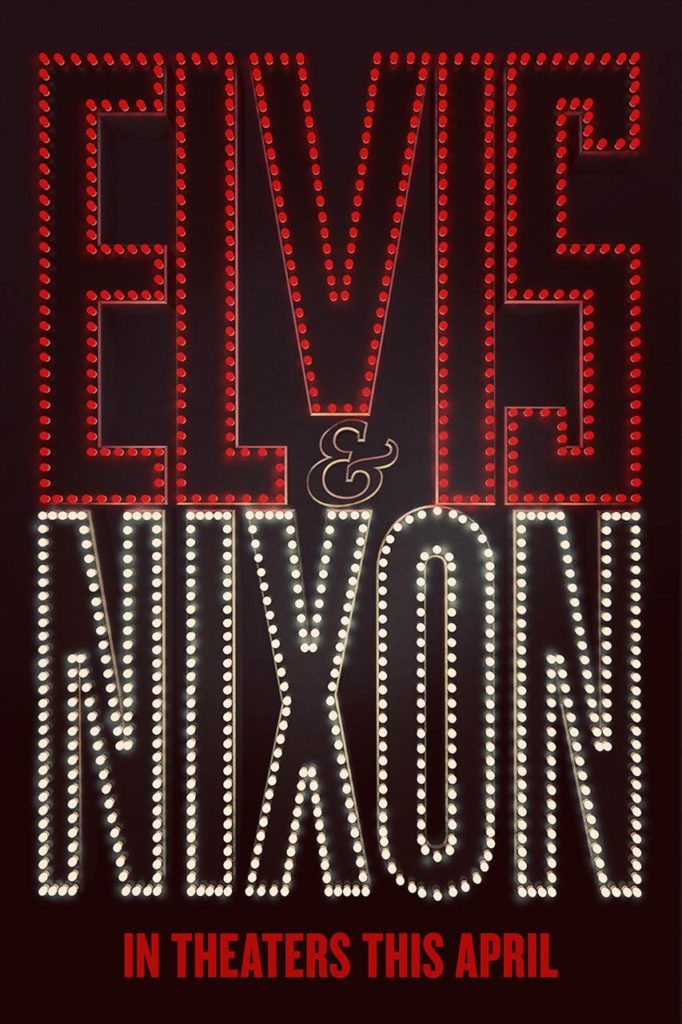 On December 21, 1971, Elvis Presley just showed up at the White House and asked for an emergency meeting with the President of the United States, Richard Nixon. Elvis claimed it was a matter of national security, as he told people he wanted to help fight the anti-American counterculture that had sprung up around the use of drugs in America as well as an unhealthy appreciation of the music of The Beatles. Nixon acquiesced, and twq of the most well known men of their day had a brief meeting about somehow working together. This meeting has been fictionalized and reimagined through the new film “Elvis & Nixon,” which paints an interesting portrait of a meeting very few people were privy to at the time.
On December 21, 1971, Elvis Presley just showed up at the White House and asked for an emergency meeting with the President of the United States, Richard Nixon. Elvis claimed it was a matter of national security, as he told people he wanted to help fight the anti-American counterculture that had sprung up around the use of drugs in America as well as an unhealthy appreciation of the music of The Beatles. Nixon acquiesced, and twq of the most well known men of their day had a brief meeting about somehow working together. This meeting has been fictionalized and reimagined through the new film “Elvis & Nixon,” which paints an interesting portrait of a meeting very few people were privy to at the time.
Because how the hell could the renown “King of Rock and Roll” think he could help the United Stated government and why would he even want to do so in the first place? In this movie, Elvis has become frustrated with the state of his country and he sees people protesting on the streets and he thinks they are being anti-American, and he wants to help show the youth that it is important to have respect for their country and their government. And his decision to become a “Federal Agent-at-Large” plays into this, as he claims he can infiltrate underground communist groups, somehow undetected, and then he can help bust drug dealers and propagandists. All he needed, he felt, was a Federal badge from the Department of Narcotics and Dangerous Drugs to make him official. And he was quite insistent on this.
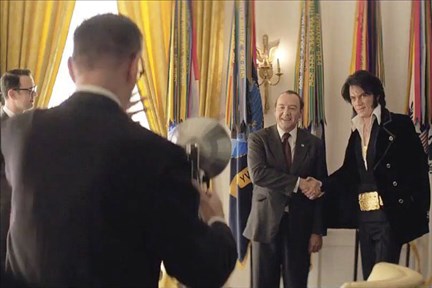 So “Elvis & Nixon,” in which Michael Shannon plays Elvis and Kevin Spacey is Nixon, is about the lead up to Elvis deciding to make this happen, and then his one day in Washington D.C., first going to the White House unannounced (and heavily armed) and then meeting with people and negotiating to get inside to see Nixon so he could get his badge. Instrumental in this meeting was a Nixon aide Bud Krogh (Colin Hanks), who convinced Nixon that this was a chance for him to improve his image with voters, seeing as how Elvis was pretty much the most popular person on the planet at that moment. So we have a situation in which two men, powerful in their own separate ways, meet in order to achieve their own goals, which meant having to negotiate with each other over whether or not badges would be exchanged for pictures and autographs and the such.
So “Elvis & Nixon,” in which Michael Shannon plays Elvis and Kevin Spacey is Nixon, is about the lead up to Elvis deciding to make this happen, and then his one day in Washington D.C., first going to the White House unannounced (and heavily armed) and then meeting with people and negotiating to get inside to see Nixon so he could get his badge. Instrumental in this meeting was a Nixon aide Bud Krogh (Colin Hanks), who convinced Nixon that this was a chance for him to improve his image with voters, seeing as how Elvis was pretty much the most popular person on the planet at that moment. So we have a situation in which two men, powerful in their own separate ways, meet in order to achieve their own goals, which meant having to negotiate with each other over whether or not badges would be exchanged for pictures and autographs and the such.
This is a fun movie to watch, mostly because Spacey and Shannon both do their own kind of exaggerated versions of these famous people, and scenes featuring either of them are very interesting, and the scenes featuring both of them are downright fascinating, because they did present this as an awkward and weird meeting between two very iconoclastic individuals, two people who would seem to be incompatible, and yet somehow quickly found common ground in their professed love of their country. And we all know already that Nixon was a manipulative and underhanded bastard, but this movie presents Elvis as being well versed in the art of manipulation as well, humbling himself in the right ways in front of the right people to get what he wants, using his fame to open doors; this is an Elvis who is very self aware of who he is and how he is perceived, which actually leads to a couple of scenes of him getting very serious with his friend and talking about “the real Elvis” and we can see in his face how beaten down and world weary he has become from being this huge figure for so long. They do start out as caricatures in this movie but they are eventually drawn out in very interesting ways that get to some strange details that we never considered about these people.
Actually, the weakest parts of “Elvis & Nixon” always involve scenes that don’t feature either Elvis or Nixon, and there are a few of these scenes. There is some stuff in the White House featuring some people scrambling to make the meeting happen, and these are okay enough because at least it gives us an idea of how something like this meeting could get set up, but then there are scenes featuring Elvis’ friend Jerry Schilling (Alex Pettyfer), and about how he is struggling with the idea of being loyal to his long time friend and his erratic schedule or being loyal to his girlfriend whom he wants to marry and needs to get back to, and while I appreciate the extra layer of story and how they were trying to use his “normalcy” as a way to compare what he has to what Elvis already has, but in the end this isn’t the story of Elvis and his buddy Jerry, this is the story of Elvis and his new friend Richard Nixon, which is much more interesting in just about every way possible.
Overall, “Elvis & Nixon” is very good and definitely worth watching for Michael Shannon’s Elvis karate chops and kicks alone. And definitely read about the real meeting between the two men after you see the movie because despite the fact that the meeting was not recorded, Krogh was present and kept notes and in real life everything went much smoother and more straightforward than in this dramatized version anyway. Also, this is kind of alluded to in the movie, but while Elvis really did meet Nixon under the guise of wanting to go undercover and help the government, apparently Elvis wanted the badge because he thought it was allow him to travel around the world with all the guns and drugs he wanted. Master manipulator, that Elvis. Not the smartest guy, but still a genius in his own way.

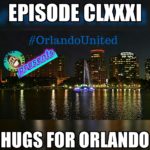 #181 – Hugs For Orlando
#181 – Hugs For Orlando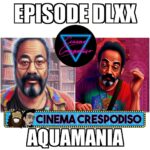 #570 – Aquamania
#570 – Aquamania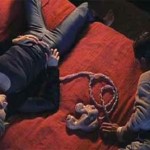 Netflix pick for 10/26/2015 – ‘eXistenZ’
Netflix pick for 10/26/2015 – ‘eXistenZ’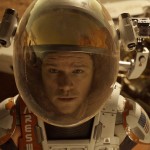 Review: ‘The Martian’
Review: ‘The Martian’
Leave a Reply
You must be logged in to post a comment.